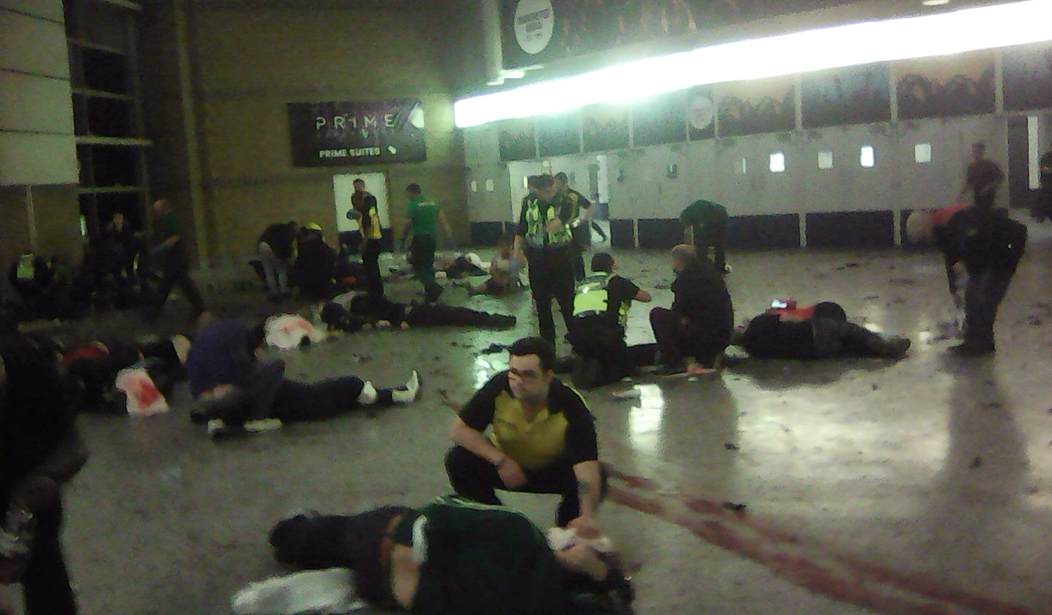Earlier this year a friend of mine had to think fast in the midst of a family emergency. Becky’s husband was out of town and she was at home alone with her three children, all under age five, when the smoke alarms sounded. Her quick actions that night saved the lives of her children from the fire that destroyed their home.
Taking the time to develop a strategy to handle a crisis can make all of the difference in an emergency situation. You can best prepare your family for disaster by taking the time now to think through what you would do if you find yourself in dangerous circumstances.
Emergency Plan
All families should develop emergency plans to prepare their families for potential catastrophes. Different plans should be made based on likely scenarios for the region in which you live. If you live in the Midwest, a contingency for a tornado is a must. If you live near an ocean or major body of water, you will need strategies to survive a hurricane or a flood. To know which natural disasters to prepare for, check out Ready.gov’s list and develop a plan for any of these tragedies that could impact your family.
No matter which danger you are preparing for, consider the following:
- Where will your family go?
- Inside your home (the basement in case of tornado, for example)
- Outside of your home (i.e. at your mailbox)
- A community meeting place (the library or a church)
- Develop a plan to help family members with limited mobility.
- How will your family contact each other?
- It is recommended that texting be used during emergencies.
- Who needs to be contacted (Mom, Dad, Grandma, neighbor, etc.)?
- It could take up to 72 hours for emergency workers to get to you, depending on road conditions and the nature of the disaster:
- The American Red Cross recommends that at least one member of your family be CPR certified.
- Plan to have a three-day supply of water and nonperishable food.
Review and practice your emergency plan twice a year and involve the whole family. Remember that in an emergency situation your children will look to you to know how to react. If you display fear and hysteria you will soon have hysterical children. Practicing your emergency plan in a calm way will teach kids how to respond if disaster should strike.
Emergency Kit
Each family should construct a basic emergency kit. (For complete lists, check here and here, or you can buy a preassembled kit). As you practice your emergency plans, also take time to re-stock your emergency kit as needed.
Basics to include:
- Copies of prescriptions or any pertinent medical information
- Copies of important documents (Social Security cards, birth certificates, marriage certificates, tax returns, proof of insurance, wills, etc.)
- Battery-operated or hand-crank radio (for emergency information)
- Flashlights
- Extra batteries
- 3 gallons of water per family member
- 3 days worth of nonperishable food items that can be prepared without electricity (peanut butter, canned goods, dried fruit, nuts, baby food, formula, etc.)
- A can opener
- Food for pets (3 days worth)
- First aid kit
Some practical items to include in your kit:
- Paper plates
- Paper towels
- Plastic eating utensils
- Toilet paper
- A change of clothes for everyone (in case you cannot get to your closet)
- 3 days’ worth of diapers and wipes
- Basic toiletries (toothpaste, toothbrushes, deodorant, etc.)
Keeping a well-stocked kit can help your family during a minor emergency, such as a short power outage or while waiting out a tornado watch. These items will be essential during a major disaster while you wait up to 72 hours for help. Most of these items can fit into a 20-gallon tote and the whole thing will cost less than $50 to prepare. (There is also a great list of emergency items to keep in your car.)
Planning for the Worst
Here are some big picture plans you should make before tragedy hits home:
- Consider purchasing life insurance.
- Create a will (do it here in around 15 minutes, prices start at $69).
- Make a plan for who will raise your children, if you are unable to:
- Ask the friend or family member if they are willing to fulfill this role.
- Consider writing a letter to your children with the things you want to be sure they know. It is a thoughtful way to leave one last contact with your children.
Preparing for the worst will force you to think through difficult scenarios. As hard as those times may be, knowing that you have a plan in place will help you to get through an unexpected trial safely and with your basic needs met. Planning ahead is something that can take very little time and effort, but it can pay huge dividends if you find yourself in an emergency situation.








Join the conversation as a VIP Member